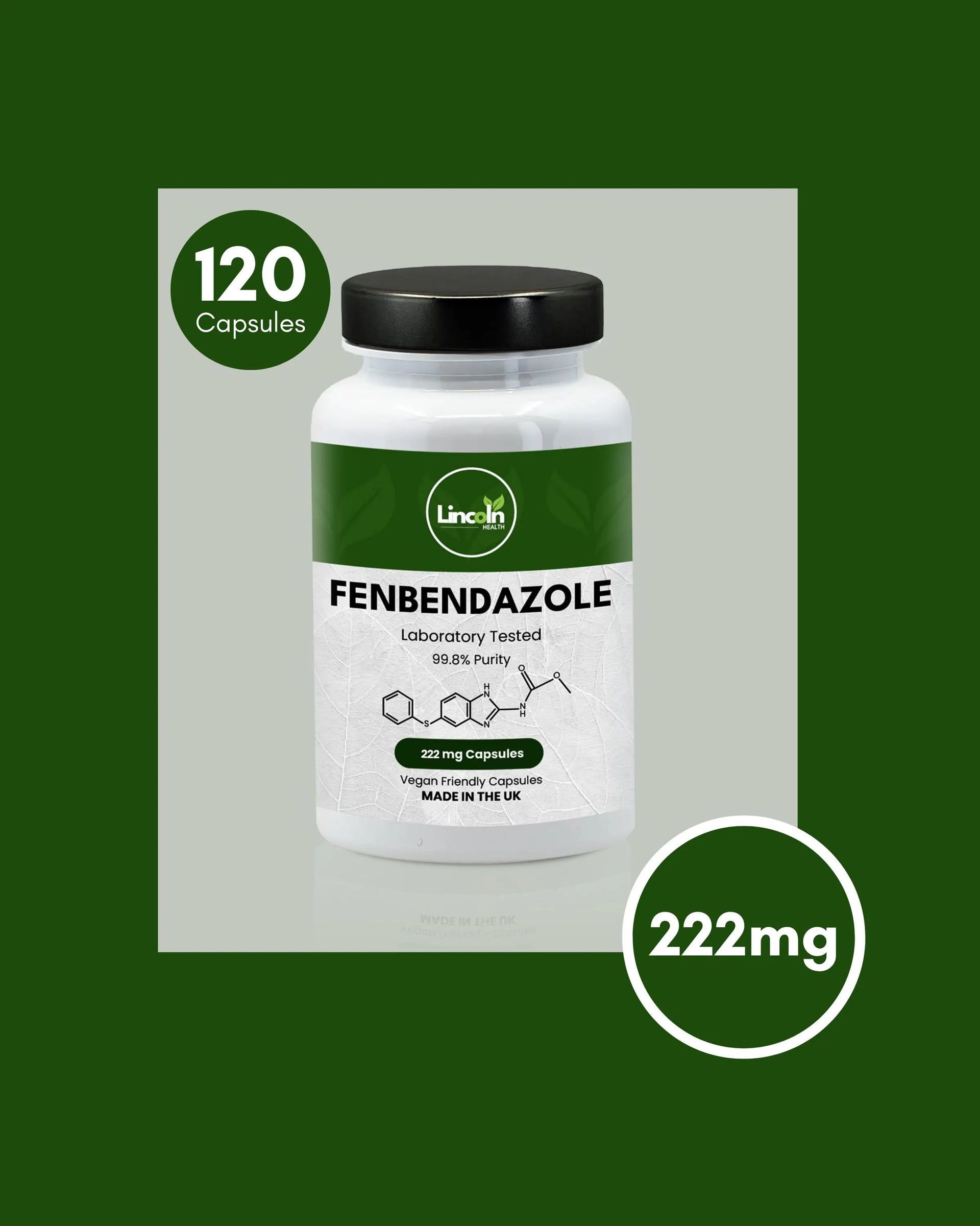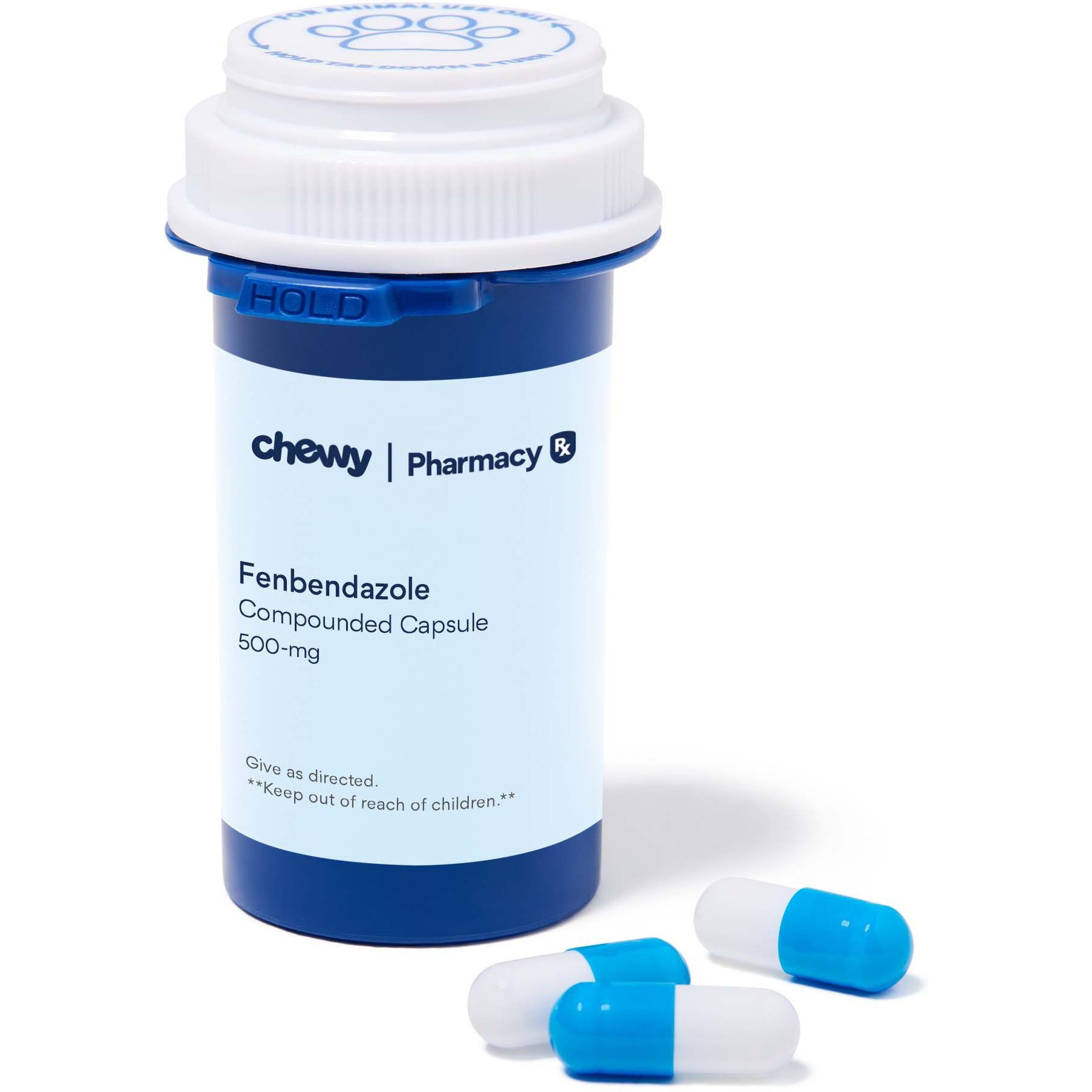fenbendazole capsules: What to Expect Before and After Treatment
All You Required to Know Regarding Fenbendazole and Its Uses in Family Pet Treatment Solutions
Fenbendazole is a widely acknowledged anthelmintic drug in veterinary care. It properly targets numerous gastrointestinal parasites in pet dogs. Comprehending its system and proper applications is essential for animal proprietors. This drug supplies notable advantages however also calls for careful dose and tracking. As pet treatment advances, discovering fenbendazole's role can offer insights into keeping ideal health for cherished pets. What should pet dog proprietors find out about its management and security?
What Is Fenbendazole?
Fenbendazole is an anthelmintic medication largely used to treat parasitical infections in animals. This broad-spectrum dewormer is efficient against a range of intestinal parasites, consisting of roundworms, hookworms, whipworms, and particular types of tapeworms. It is frequently made use of in pet dogs, felines, horses, and animals, making it a flexible alternative for pet dog proprietors and vets alike. Fenbendazole is normally provided orally, readily available in numerous formulas such as granules, tablet computers, or suspensions. The medication is usually thought about secure, with a low incidence of adverse effects, although it is important for pet dog owners to adhere to dosage instructions carefully. By getting rid of parasitic infections, fenbendazole helps maintain general health and wellness and wellness in family pets, ensuring they remain active and vibrant. Its efficacy and safety account have added to its prevalent usage in vet technique, developing fenbendazole as a keystone in pet treatment solutions.

How Does Fenbendazole Work?
Targeting bloodsuckers at a mobile level, fenbendazole disrupts their metabolic processes. This anthelmintic medication mainly hinders the function of microtubules, important elements of the parasite's cellular structure. By binding to tubulin, a healthy protein that forms microtubules, fenbendazole avoids the setting up of these frameworks, which are vital for numerous mobile functions, including transport and department. As an outcome, the influenced bloodsuckers are unable to maintain their life procedures, resulting in their ultimate fatality.
Fenbendazole additionally hinders energy manufacturing in bloodsuckers by preventing the enzyme fumarate reductase, vital for their metabolism. This dual activity not just restrains their ability to duplicate yet likewise compromises their energy supply, additional improving its efficiency. Overall, fenbendazole's targeted device permits reliable control of a wide spectrum of parasitical infections, making it an important device in veterinary medication for the therapy of infested pets.
Typical Uses Fenbendazole in Pet Treatment
In the domain name of vet medicine, fenbendazole is typically utilized for its effectiveness against a variety of parasitic infections in pets. This broad-spectrum anthelmintic is largely used to deal with gastrointestinal bloodsuckers such as roundworms, hookworms, whipworms, and tapeworms. Fenbendazole is likewise effective against particular protozoan infections, consisting of giardiasis.
Vets usually recommend fenbendazole for regular deworming in pups and kittens, provided their susceptibility to these parasites. In addition, it is utilized in grown-up dogs and pet cats as part of an extensive parasite control program.
Fenbendazole is preferred for its safety and security account, making it appropriate for use in various breeds and ages of animals. It is generally administered in dental type, via granules or tablets, permitting very easy unification into an animal's diet regimen. Regular use fenbendazole adds to preserving overall wellness and health in animals by avoiding and taking care of parasitic infections effectively.
Benefits of Fenbendazole for Pets
Fenbendazole uses considerable benefits for animals, especially as an efficient therapy for different parasitic infections. Its security profile makes it appropriate for a variety of animals, ensuring that both pet dogs and cats can profit from its use without significant risk. This mix of efficiency and safety positions fenbendazole as a valuable option in pet treatment.
Effective Bloodsucker Therapy
Numerous animal owners look for efficient solutions for parasite problems, and fenbendazole has actually become a trustworthy choice. This broad-spectrum anthelmintic medication targets different internal bloodsuckers, including roundworms, hookworms, and whipworms. Fenbendazole interferes with the basal metabolism of these bloodsuckers, leading to their elimination from the animal's system. Its effectiveness is notable throughout various species, making it a versatile choice for lots of family pet proprietors - fenbendazole 222. In addition, fenbendazole is typically well-tolerated, with minimal adverse effects reported, which enhances its allure as a treatment alternative. Routine usage of fenbendazole can aid preserve a family pet's wellness and comfort by avoiding the complications related to parasitic infections. Overall, fenbendazole stands apart as an important tool in the battle versus typical parasites in animals
Safe for Different Pets

Dosage and Management Guidelines
When considering fenbendazole for animals, understanding the appropriate dosage is vital for efficiency and security. Recommended dosage standards differ based on the kind of animal and the specific problem being dealt with. In addition, different administration methods can affect the total success of the therapy.
Recommended Dosage Standards
Although fenbendazole is an extensively used anthelmintic in veterinary medication, establishing the right dose for pets is essential to ensure both effectiveness and safety and security. The suggested dose normally differs based upon the kind of bloodsucker being treated and the family pet's weight. For pet dogs and cats, a common guideline recommends providing 50 mg per kilo of body weight daily for 3 successive days. In some instances, a vet might recommend a longer treatment duration or adjust the dose based on individual wellness conditions. It is crucial for family pet proprietors to get in touch with a vet prior to carrying visite site out fenbendazole, as unacceptable dosages might lead to inefficient therapy or potential side results, stressing the value of expert advice in pet care


Management Approaches Explained
Administering fenbendazole to animals needs mindful factor to consider of the approach to guarantee optimal absorption and performance. One of the most usual administration methods consist of oral solutions, such as tablets or suspensions. Tablet computers ought to be provided entire, while suspensions have to be shaken well before use. For animals that are challenging to medicate, mixing fenbendazole with a little quantity of food can boost acceptance. Dosing typically depends upon the pet dog's weight and the certain problem being dealt with. It is vital to comply with veterinarian referrals very closely and complete the full course of therapy, also if symptoms boost. Keeping track of for negative effects is additionally vital, as adverse reactions can occur, albeit infrequently. Proper administration assures the drug's efficiency and the pet dog's health and wellness.
Safety Considerations and Potential Adverse Effects
While fenbendazole is widely acknowledged for its performance in treating various parasitical infections in pet dogs, it is important to examine the safety profile and possible negative effects linked with its usage. Normally, fenbendazole is thought about safe when administered at advised does, yet some pet dogs might experience damaging reactions. Usual adverse effects consist of intestinal disruptions such as throwing up and diarrhea, in addition to sleepiness or anorexia nervosa.
In rare situations, allergies might occur, leading to signs and symptoms like swelling or problem breathing (fenbendazole capsules). It is crucial for pet owners to check their pets carefully throughout therapy and report any type of uncommon habits to a vet. In addition, fenbendazole must not be made use of in animals with recognized hypersensitivity to the medicine or in pregnant animals unless especially suggested by a vet. Overall, informed use and veterinary support can help minimize threats connected with fenbendazole therapy in pet dogs
Regularly Asked Concerns
Is Fenbendazole Safe for Expecting Animals?
The safety and security of fenbendazole for expecting family pets continues to see this site be uncertain. Some researches suggest possible risks, while others suggest it may be secure. Consultation with a veterinarian is necessary to ensure the health and wellness of both the mother and her children.
Can Fenbendazole Be Utilized for Pet cats?
Fenbendazole can be used for pet cats, mainly to treat particular kinds of parasitic infections. However, it is vital for animal owners to consult a veterinarian for proper dose and safety and security guidelines particular to their feline's health.
How Much Time Does Fenbendazole Require To Work?
The time it takes for fenbendazole to function commonly varies from a few days to a week, depending upon the certain problem being dealt with and the specific animal's action to the drug. Consistent dosing is essential.
Exist Any type of Interactions With Other Medications?
Prospective interactions with various other medications need to be very you can try these out carefully thought about when administering fenbendazole. Consulting a veterinarian is necessary to ensure risk-free combinations, as particular drugs might change its efficiency or increase the risk of adverse effects in pets.
Where Can I Purchase Fenbendazole for Family Pets?
Fenbendazole for pet dogs can be purchased at vet clinics, animal supply shops, and online retailers. It is vital to assure the item is especially formulated for animals to confirm safety and efficiency in therapy.